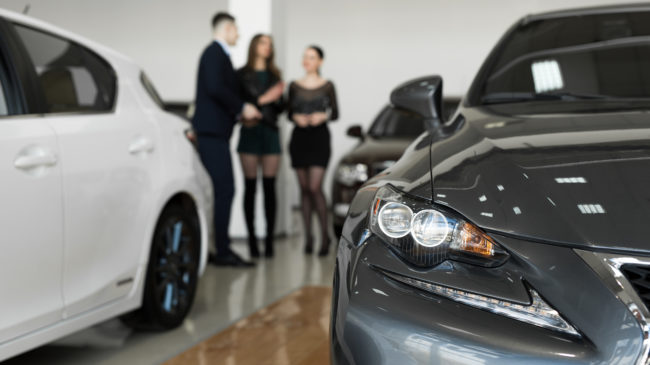For much of the past decade, Michigan and Tesla Motors have been engaged in a dispute over how the electric car manufacturer may market and service its vehicles in the state. Backed by the powerful auto dealers lobby, stakeholders in Michigan have fought to prevent Tesla from competing with traditional automakers and their franchised dealers. Following a challenge in federal court, Michigan came to an agreement with Tesla earlier this year to allow Michigan’s Tesla owners to take delivery and get their electric cars serviced in-state. However, recently introduced legislation that would codify the terms of the settlement is likely to reignite litigation between the state and auto manufacturers.
Tesla Motors found itself in the crosshairs of Michigan officials by eschewing the conventional indirect-sales distribution model, whereby consumers purchase new automobiles from franchised automobile dealers. Instead, Tesla sells directly to consumers, bypassing franchised dealers. Following a narrow amendment in the 2014 legislative session that tightened the prohibition on manufacturer direct sales and Tesla’s subsequent failed attempt to obtain licenses to sell and repair the cars it sells in the state, Tesla filed suit in federal court challenging the constitutionality of Michigan’s protectionist dealer franchise law.
In January 2020, Michigan and Tesla settled the lawsuit. Under the terms of the settlement, Tesla can open non-dealership showrooms and invite consumers to take test drives. The terms also allow Tesla to sell to Michigan consumers and service its vehicles in-state, albeit in a convoluted manner. Tesla must conduct sales transactions and title transfers outside of Michigan (presumably in California, where Tesla is headquartered) and can only offer in-state repairs through a subsidiary. But it will allow Michigan residents to place an order over the phone or online and take delivery at their Michigan homes. Those Michigan Tesla owners can then have their vehicles serviced in-state by Tesla’s subsidiary rather than seeking maintenance across the border.
This is an improvement for Michigan consumers, but it also highlights the underlying protectionism of the mandated auto manufacturer-dealer relationship. Laws governing this relationship have evolved significantly over the last century, as automakers and dealers each fought for more power over the other. The status quo of indirect new car sales by dealers reflects a decades-long détente between the previously hostile parties, one that benefited traditional automakers and dealers alike.
But consumers were never a party to this corporate armistice. The political battle between manufacturers and dealers was never about what’s best for consumers. The franchising model was adopted by manufacturers as a way to spread production and marketing risk, and dealers fought to shift some of that risk back to manufacturers. While dealers can certainly add value to consumers, nothing about the indirect sales model is intrinsically pro-consumer. Indeed, when this battle was raging in the 1940s, governments seeking to regulate the relationship between automakers and dealers were careful to avoid consumer welfare arguments lest their proposed policies be shown to be anti-consumer.
Back to Michigan’s latest bill, H.B. 6233. Under the January 2020 settlement, Michigan has already agreed to interpret and enforce its franchise law in a way that opens the state to Tesla. Other upstart automakers similarly situated to Tesla are expected to seek equal treatment and are likely to litigate if their requests for marketing and repair licenses are denied by the state.
But the bill doesn’t only write the terms of the settlement into the statute and carve out an explicit direct sales exemption for Tesla. It would tighten the definitions of “sell” and “selling” to prohibit other automakers from, among other things, offering test drives to potential customers. The bill would also prohibit manufacturers from charging fees or surcharges to dealers on warranty parts reimbursements. This tipping of the scales in the favor of auto dealers would violate the unwritten automaker-dealer peace agreement that’s been in effect for decades.
By codifying the narrow terms of the Tesla settlement in statute and tweaking definitions that ought to raise the ire of traditional automakers, Michigan lawmakers supporting this bill are practically begging for the state to be hauled back into court. Perhaps the silver lining of this bill is that it is so reckless that it may ultimately lead to the weakening of mandatory indirect auto sales laws, which would be great news for consumers.

